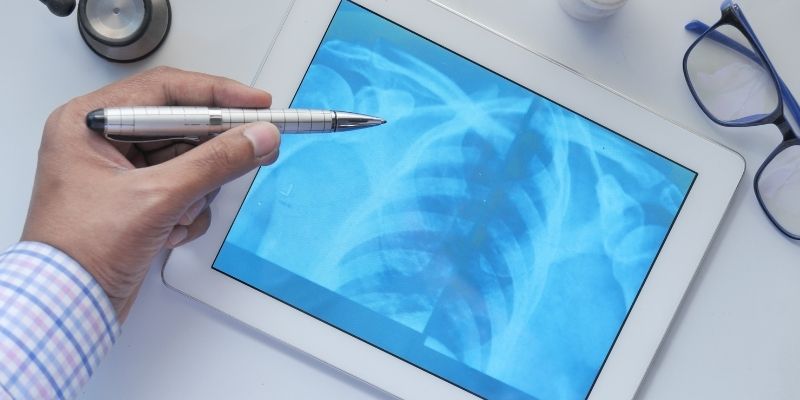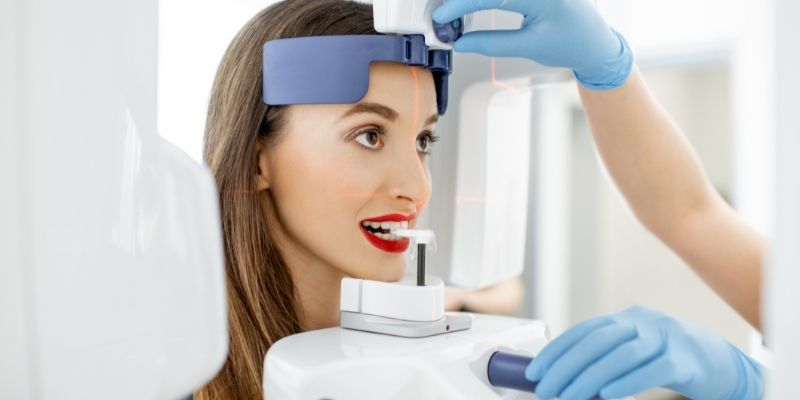Radiography is a heavily tech-reliant healthcare process that has propelled the success of medical treatments and disease management to new heights. It began with the X-ray in the 1890s, but now, other technologies like CT and MRI scanners, Fluoroscopy and Angiography procedures enable Physicians to save lives more effectively on a daily basis.
Being so technology-driven, it appeals to those who want to combine a love of mechanics and medical science. The constant evolution of medical technology also means it’s ideal for anyone who thrives on the challenge of continual learning and development.
If this sounds like you and you find the thought of a career in radiography appealing, we’ve put together a detailed guide to getting a job in this field. We also explain the different avenues of radiography that are available so you can choose the division that is most suited to you.
What Does a Radiographer Do?
Before we get started in explaining how to become a Radiographer, UK learners, we need to clarify the difference between the type of Radiographer you can become. This is because the role of Radiographers can differ greatly depending on which you decide to pursue.
You can specialise in either diagnostic or therapeutic radiography, and we have explained the differences between them below:
What Does a Diagnostic Radiographer Do?
As a Diagnostic Radiographer, your focus is on the use of complex equipment to yield images like X-rays and scans that paint a clear picture of what is causing the patient's ailments. As such, appointments with patients tend to be fairly short, with many Diagnostic Radiographers seeing up to forty patients a day in larger hospital settings.
What Do Therapeutic Radiographers Do?
Therapeutic Radiographers, on the other hand, operate highly technical equipment to harness radiation to treat cancer and tissue defects. This requires the Therapeutic Radiographer to plan the treatment, in addition to delivering it, so they know exactly how much radiation should be used to effectively target the site of the disease.
For this reason, Therapeutic Radiographers tend to work with patients for longer periods at a time and on a repeated basis. This means you will develop a professional relationship with them and act as a pillar of support for them throughout their medical treatment.
Where Do Radiographers Work?
As a Diagnostic Radiographer, you can work in the radiography department of the hospital where you would be on hand to take images of patients that arrive in A&E, those going in for surgery in theatre or those in outpatient clinics.
Therapeutic Radiographers instead tend to work in a specialised radiotherapy or oncology centre, or large hospitals that house these departments.
What Makes a Good Radiographer?
While both types of Radiographer need to be medically and technically minded, there are specific skills and personality traits that good Radiographers possess that enable them to do their jobs successfully.
These include:
- The ability to communicate procedures to patients clearly
- An empathetic and supportive nature
- Highly observant and intuitive to the patients’ needs
- Great attention to detail
- Good under pressure
- Highly self-motivated
- Organised
- Decisive
- Both a team player and an effective independent worker
- Confident in using technology and IT software
- The ability to remain professional in emotionally distressing situations
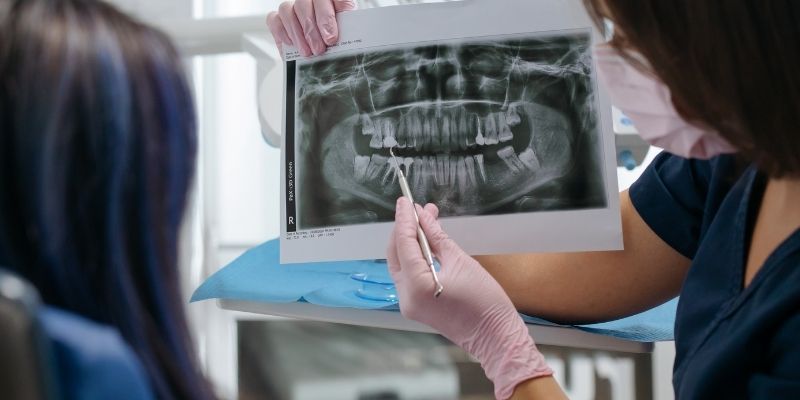
You will also need to have a high level of understanding of numerous science-related subjects.
These include:
- Anatomy
- Ethics
- Management
- Physics
- Physiology
- Scientific Imaging
- Sociology
How Much Does a Radiographer Make?
If you’re wondering ‘How much does a Radiographer earn?’, the Radiographer salary, UK learners, will depend on many elements. This can include your level of experience, whether you work in NHS Radiographer jobs or you’re on a private Radiographer salary, if you pursue Radiographer jobs London-based, or otherwise.
As a guide, the NHS Radiographer salary is more structured as their pay rates are covered by the Agenda for Change (AfC) pay rates. As such, you can expect:
- Graduate Radiographer jobs: Between £24,907 - £30,615 (Band 5)
- Senior radiography salary: Between £31,365 - £37,890 (Band 6)
- Advanced practice and management Radiographer roles: Between £38,890 - £51,668 (Bands 7 to 8a)
How to Become a Radiographer
If your plan is to complete the necessary Radiographer training required to pursue either radiography role, you will need to complete a degree that is approved by the Health and Care Professionals Council (HCPC).
These university-level radiography courses are typically studied full-time over three years, or four if your radiography degree has a placement year. Otherwise, you can study part-time Radiographer degrees over a longer timeframe of up to six years.
What is a Radiography Course?
A radiography course is a programme of study that aims to teach you about all the essentials to get started in a radiography career.
This includes subject-specific skills in areas like:
- Anatomy
- Physiology
- Pathology
- Plus, the science, theory and practice of taking images for medical purposes, radiographic research methods and statistics
It will also equip you with transferable skills like:
- Communication
- Problem-solving
- Evaluating
- Acting on evidence
- Decision-making
You will need to ideally make the choice between diagnostic or therapeutic radiography by this stage, so you can study the degree specific to your chosen radiography profession. However, both courses cover aspects from the other radiotherapy discipline to give you an overall knowledge of both.
Should you wish to move into the other area more specifically once completing your degree, there are many radiography postgraduate courses you can study.
Diagnostic Radiography Course
Should you choose a diagnostic radiography course, you will cover modules that explore aspects like:
- Pathophysiology for Diagnostic Radiographers
- Diagnostic radiography equipment
- Scientific principles of medical imaging
- Image interpretation, and more
Therapeutic Radiography Courses UK Learners
If you opt for a therapeutic (or radiotherapy and oncology course), you will cover some of the same diagnostic modules, however, others will take you deep into the therapeutic aspects of the profession.
As such, you will examine elements like:
- Oncology
- Equipment for radiotherapy
- Anatomy and Physiology for the Radiographer
- Radiation Physics
- Planning and dosimetry
- Radiographic anatomy, and more
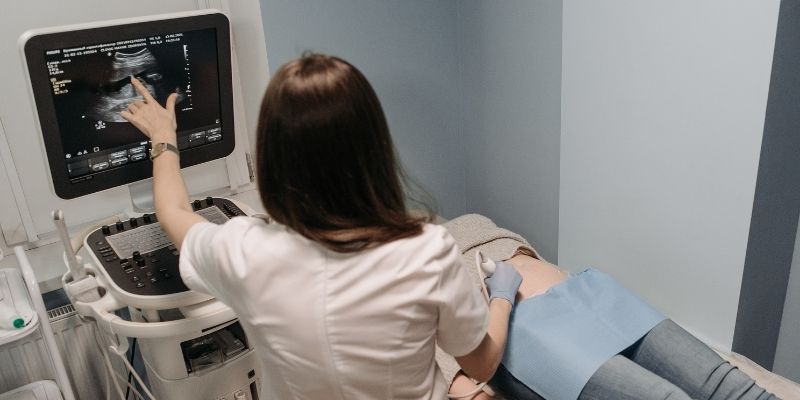
Universities with Radiography Courses
There are a host of excellent universities across the UK where you can gain the knowledge, skills and caring disposition to work effectively as a professional Radiographer.
Some of the many universities that provide radiography degrees include:
- Teesside University, Middlesbrough
- University of Derby
- AECC University College
- Sheffield Hallam University
- Canterbury Christ Church University
- University of Salford
- Coventry University
The list goes on, with more than 40 universities offering degrees in radiography throughout the UK.
How to Meet University Entry Requirements
In order to study a radiography degree at university, like all degrees, you need to meet the course entry requirements. This can include a combination of traditional Level 2 and Level 3 qualifications, though, there are now other courses you can take that tick these boxes.
Of the traditional options, universities would often ask for:
- Five GCSEs at grade C/4 or above, including English, Maths, and a Science
- Three A Levels at grades CCC to BBB, with the latter being a typical minimum requirement, with one subject being a Science
Now, you can meet these requirements through:
- GCSE grade equivalents like Functional Skills
- A Level study equivalents like an Access to Higher Education Diploma
Functional Skills courses can help you meet the requirements for GCSE English and Maths and are much quicker to obtain. Studied online, you typically get these qualifications in a few weeks or months, and they are widely accepted by both universities and employers. Though, it’s always best to check.
The Access to Higher Education Diploma (Radiography) is equivalent to three A Levels and is specifically designed to help people without these Level 3 qualifications get into university. This is because the course materials have been carefully designed with the help of university professors, who are experts in their subject.
This helps ensure you are covering the topics that are required to elevate your knowledge and help you exceed in the workplace.
During your studies you will cover:
- Cell Biology
- Electromagnetic Spectrum
- Atomic Structure
- The Human Muscular and Skeletal System
- Medical Physics
- The Roles and Responsibilities of Health Care Professionals
- Human Disease and Prevention
- Radioactivity and more
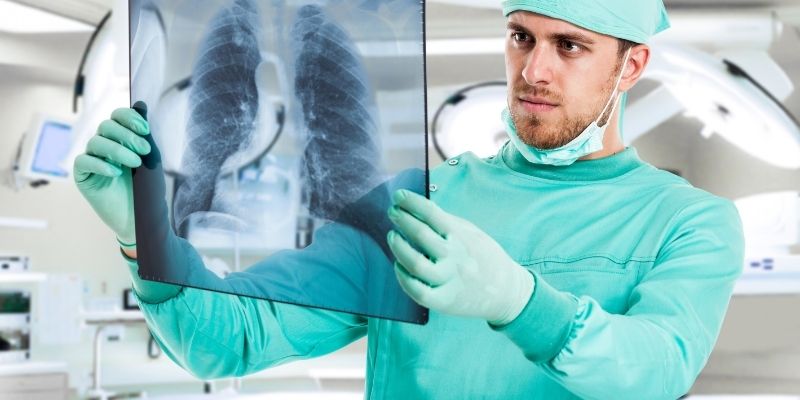
With this knowledge and Level 3 qualification, you will be able to go on to degree-level study of radiography, should you meet the remaining entry requirements.
Please note, while most universities accept the Access to HE Diploma as part of their entry requirements, not all do. As such, it’s always recommended you check with your chosen institution that this qualification will be accepted before you enrol.
Study Radiography Online
Stonebridge Associated Colleges is a UK leading long-distance learning provider with an abundance of regulated online courses to help you kickstart your ideal career. If you choose to study your Access to Higher Education Diploma (Radiography) with us, or the GCSEs, Functional Skills or A Levels that can help you progress to a radiography degree you will become privy to a host of benefits.
These include:
- No travelling – Save time and money by learning from home and remove the logistical nightmare that is often associated with on-campus education
- No pressure or delays – Relax into your learning as you complete the course at your pace. Take it slow if you need more time to digest the new information or blitz straight through modules you pick up quickly. Your progress is on your terms, and you can finish your course when you’re ready
- Flexible payments – Financial constraints are a thing of the past as our flexible payment options make your education more affordable
- Tutor support – Reap the benefits of independent study with the reassurance of professional support from tutors when required. You’ll also gain constructive feedback on assignments to help keep you on track to success
Find out more now about how our online radiography course can help you access a career in this fascinating and important field. Speak to our Course Advisors now on 0121 392 8288 or reach out to us online.
